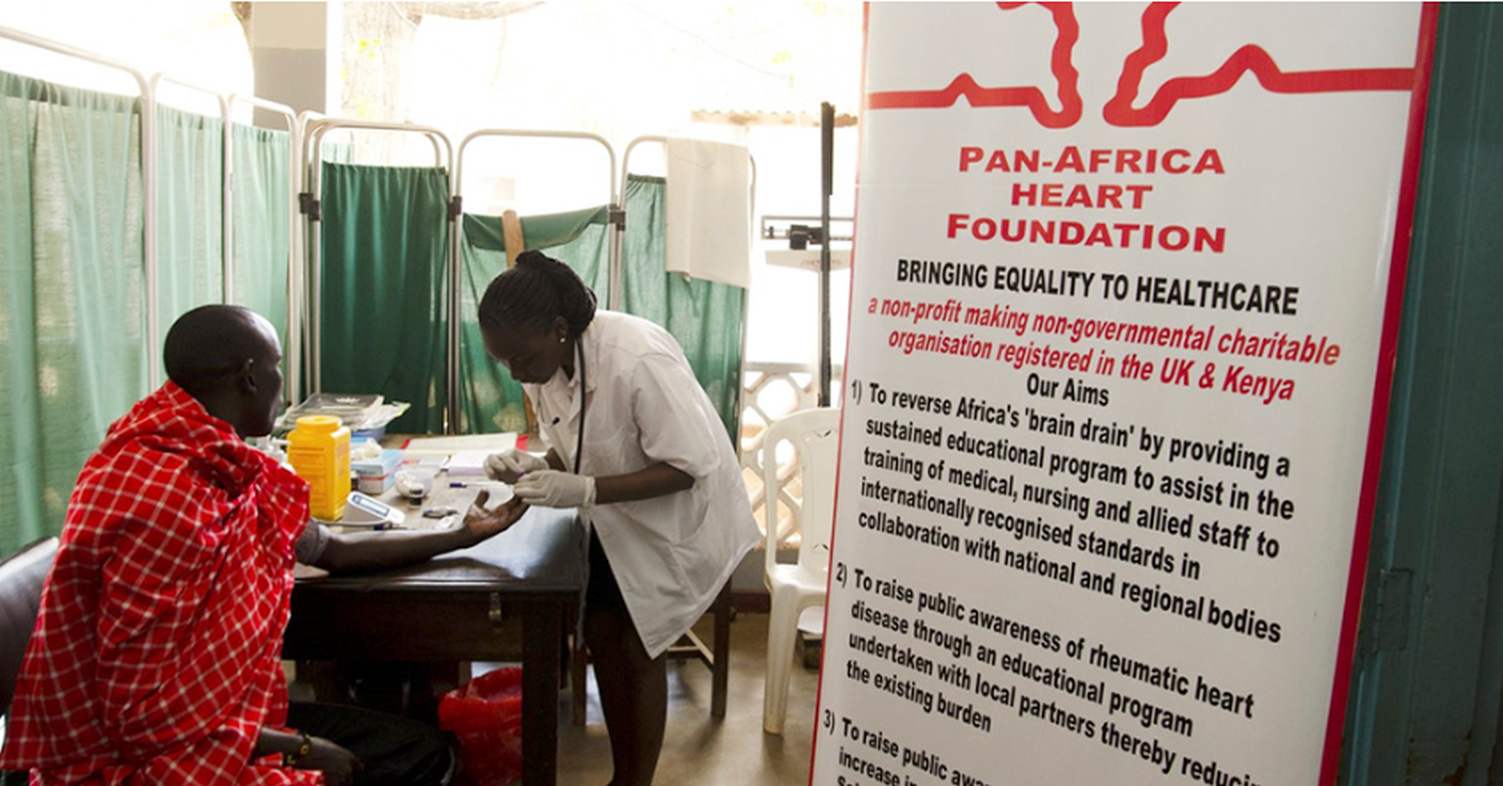NCD Program Database
Help improve the diagnosis, care, and treatment of diabetes and hypertension in Kenya, and ultimately throughout the sub-Saharan region where non-communicable diseases are already the leading cause of death in some age groups. ,
NCDs have been predicted to become the leading cause of death by 2030. Distance to healthcare facilities from more rural areas of Kenya, lack of capacity and the necessary equipment and medicines all leads to poor results in treatment of these NCDs.
This is a mobile screening program for diabetes and hypertension in selected counties in Kenya with the cooperation of the Ministries of Health in those counties. The objective of the pilot is to help improve the diagnosis, care, and treatment of diabetes and hypertension in Kenya and eventually, throughout the sub-Saharan region where NCDs are already the leading cause of death in some age groups.
Patients diagnosed with diabetes or hypertension will be referred to local clinical officers trained and educated through this program to deploy chronic disease protocols. The program will also be training community health workers on diabetes and hypertension using AMREF Health Africa’s LEAP mHealth platform. LEAP delivers training through SMS and audio files using basic phone technology, and can also deliver rich content such as animations and illustrations to smartphones. The community health workers will raise awareness among their populations on risk factors such as poor diet, physical inactivity, alcohol abuse, tobacco smoking and exposure to tobacco smoke, and also promote regular check-ups.
In addition, the program provides county-owned and private facilities with basic technologies for screening, diagnosis, treatment, and monitoring of diabetes and hypertension using an innovative solution for improving collection, analysis, and dissemination of community health data called Mobile-Jamii Afya Link (MJALI). MJALI incorporates a mobile application for capturing data and transmitting it to an online database and analytics /visualization platform at no cost to the patient or the facility. MJALI is used by community health workers and clinicians to monitor key health indicators during household or clinic visits, make referrals, and assist in making decisions on patient management. The application also sends out alerts on patients whose readings are consistently outside the normal range.
Relief of sickness and preservation of health including, but not limited to raising awareness of the causes and symptoms of heart related diseases and by assisting in the diagnosis and the provision of medical treatment.
Advancement of education and training in particular in the medical, nursing and allied heathcare fields.
Achieving stable chronic disease management at the time the initial pilot is completed. Patients will be handed over to local clinical officers trained and educated through this program to deploy chronic disease protocols.
Critical to this initiative is working together with and supporting the national and county governments. Ultimately the aim is to feed back into the government system. The program will deliver protocolised and evidence based clinical pathways based on the UK NICE (National Institute of Health and Care Excellence) guidelines to all tiers of the socio-economic pyramid.
|
SDGs
4
|
|
NCDs
3
|
|
NCD Targets
3
|
|
Regions
1
|
|
Strategies
3
|
|
Countries
1
|






